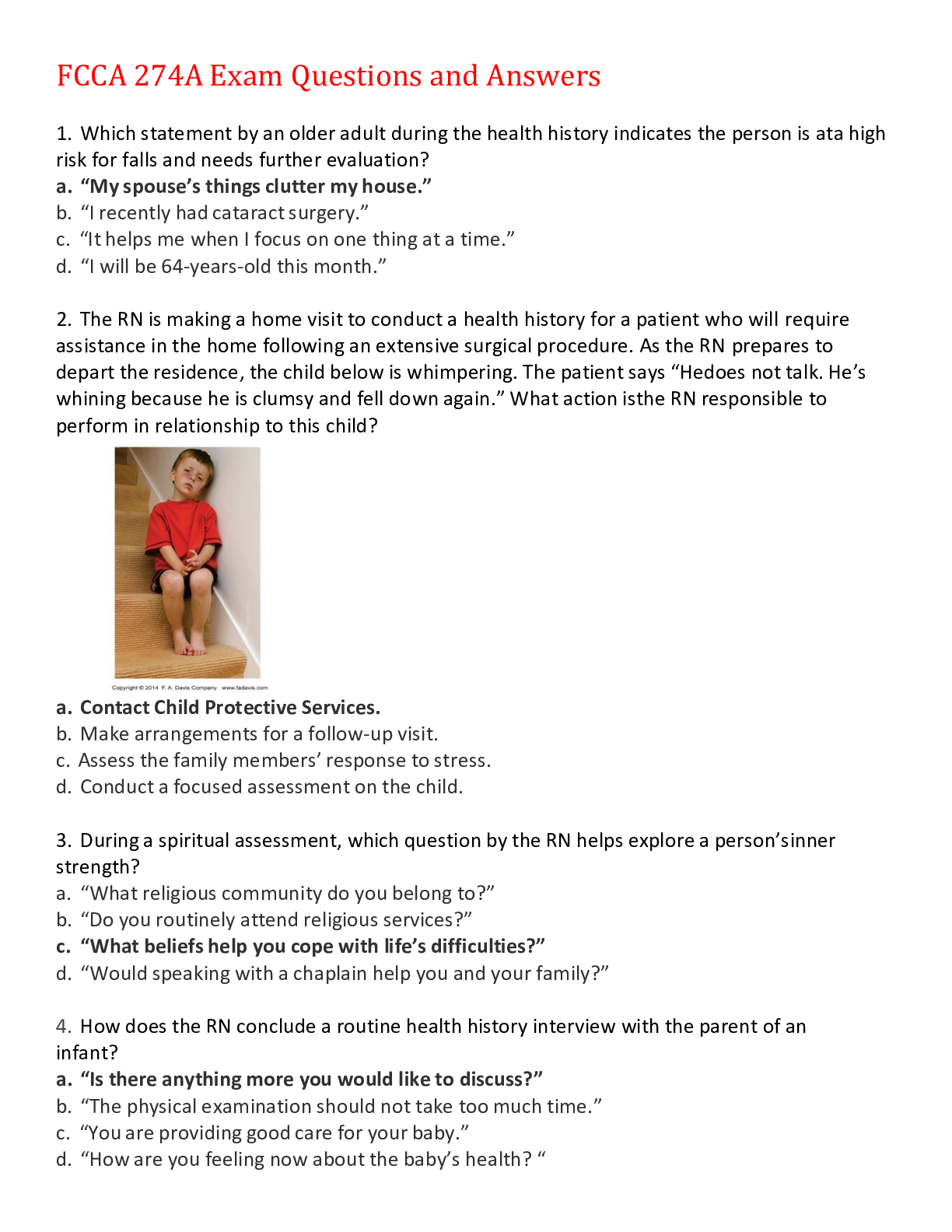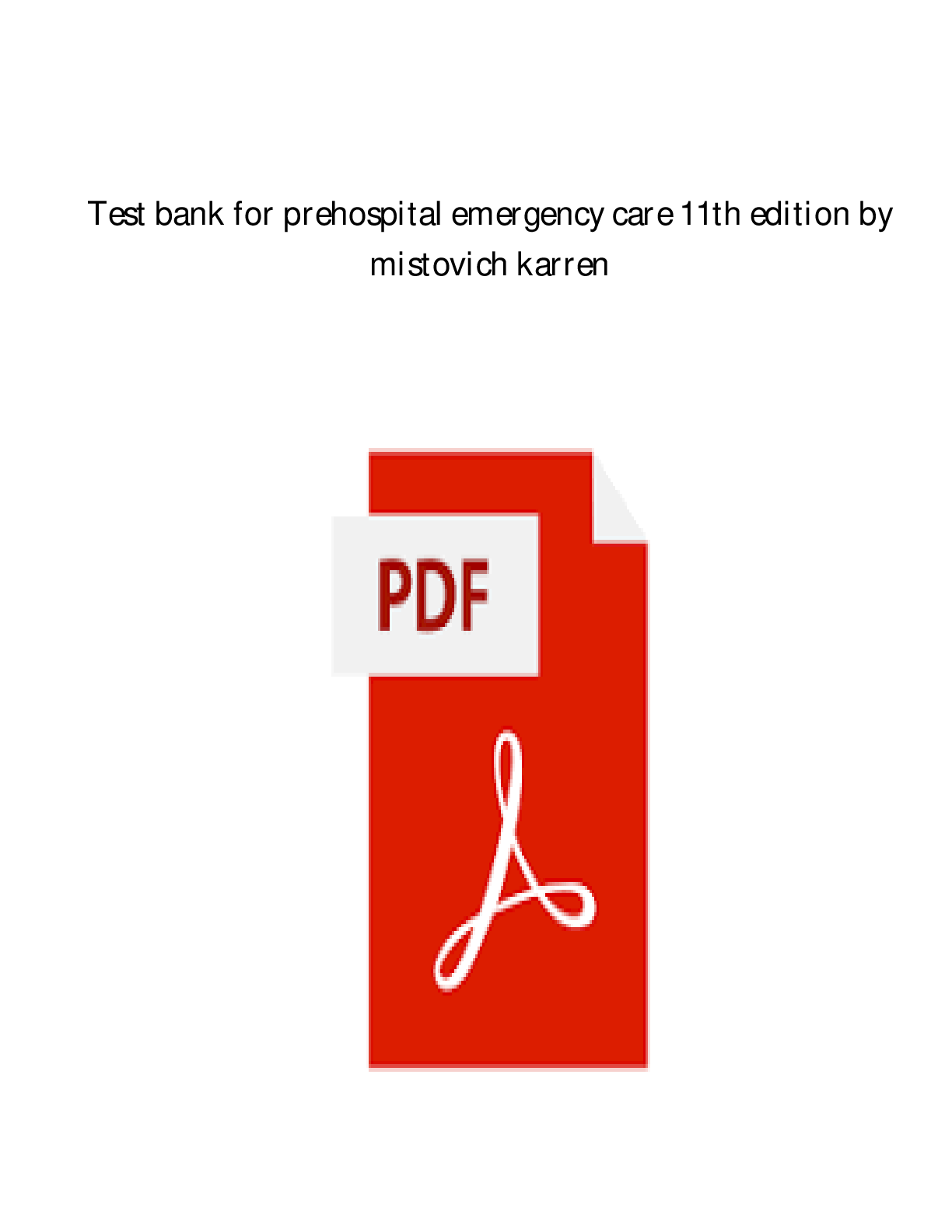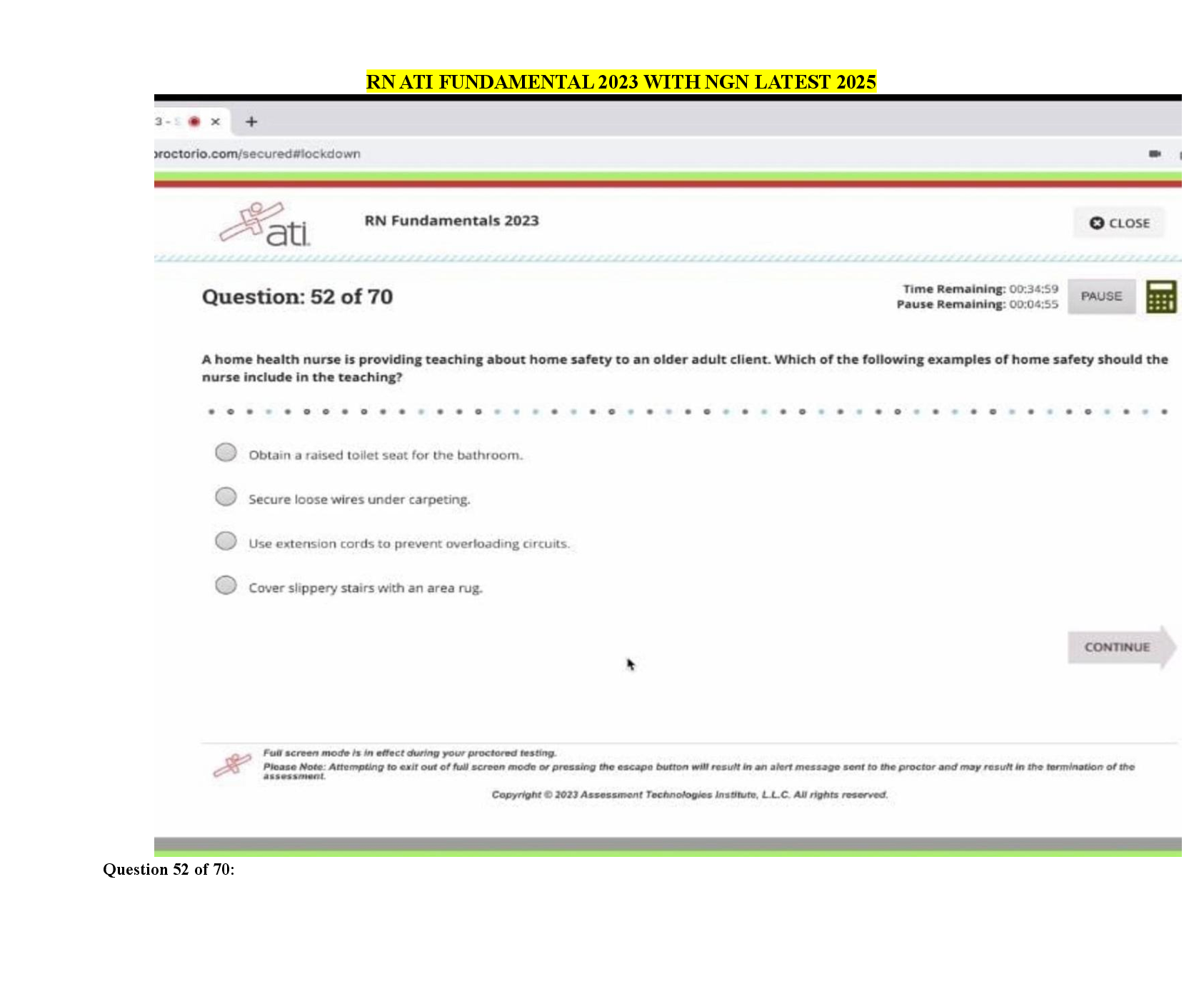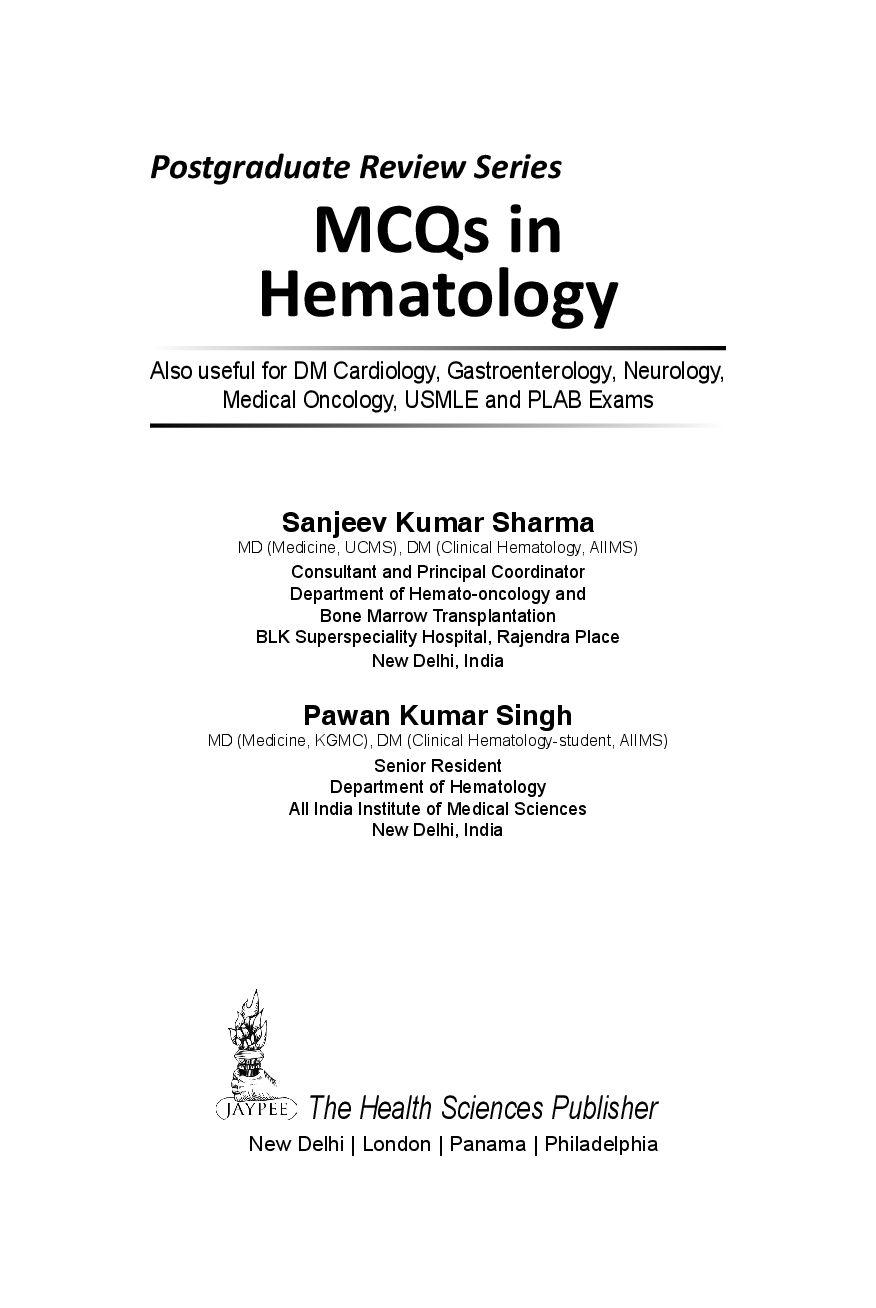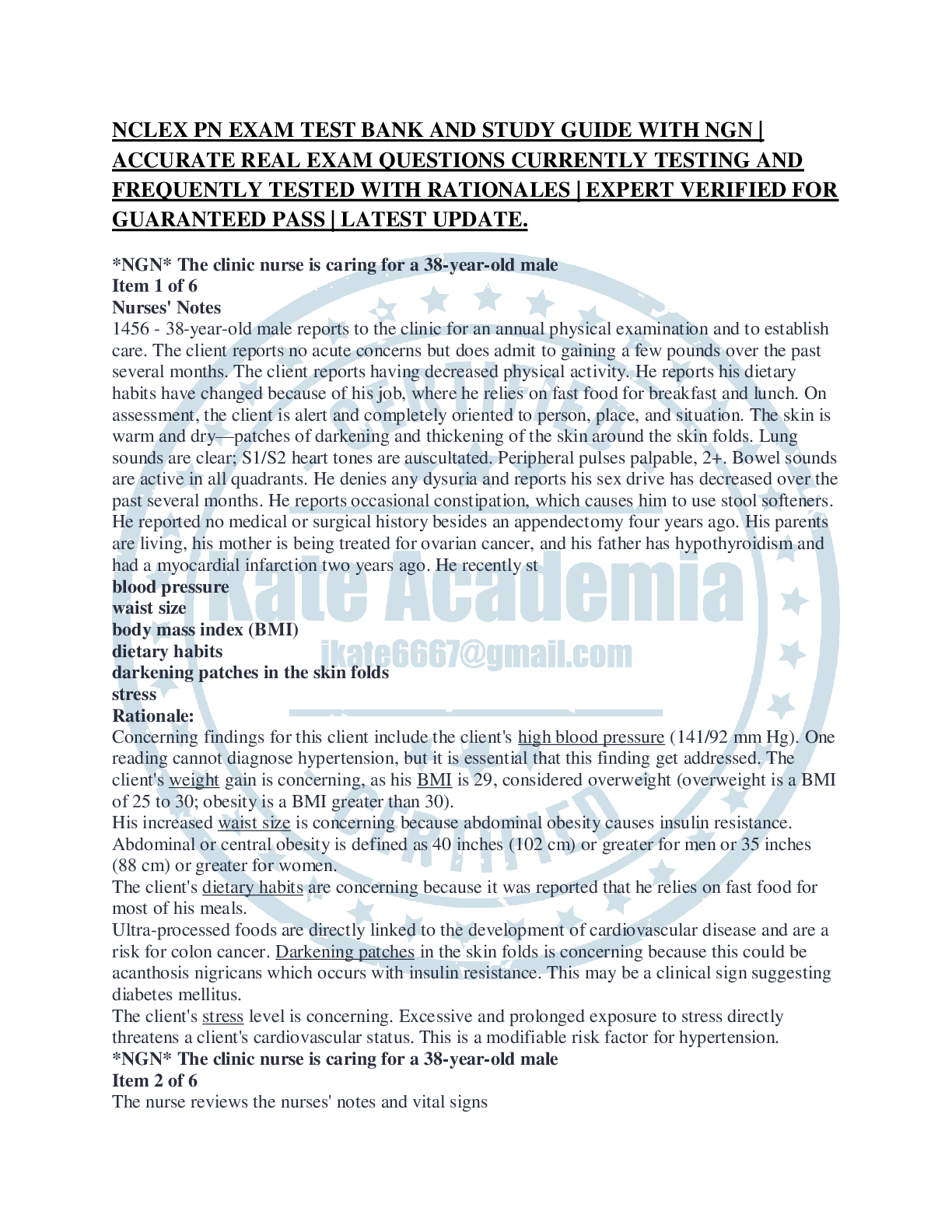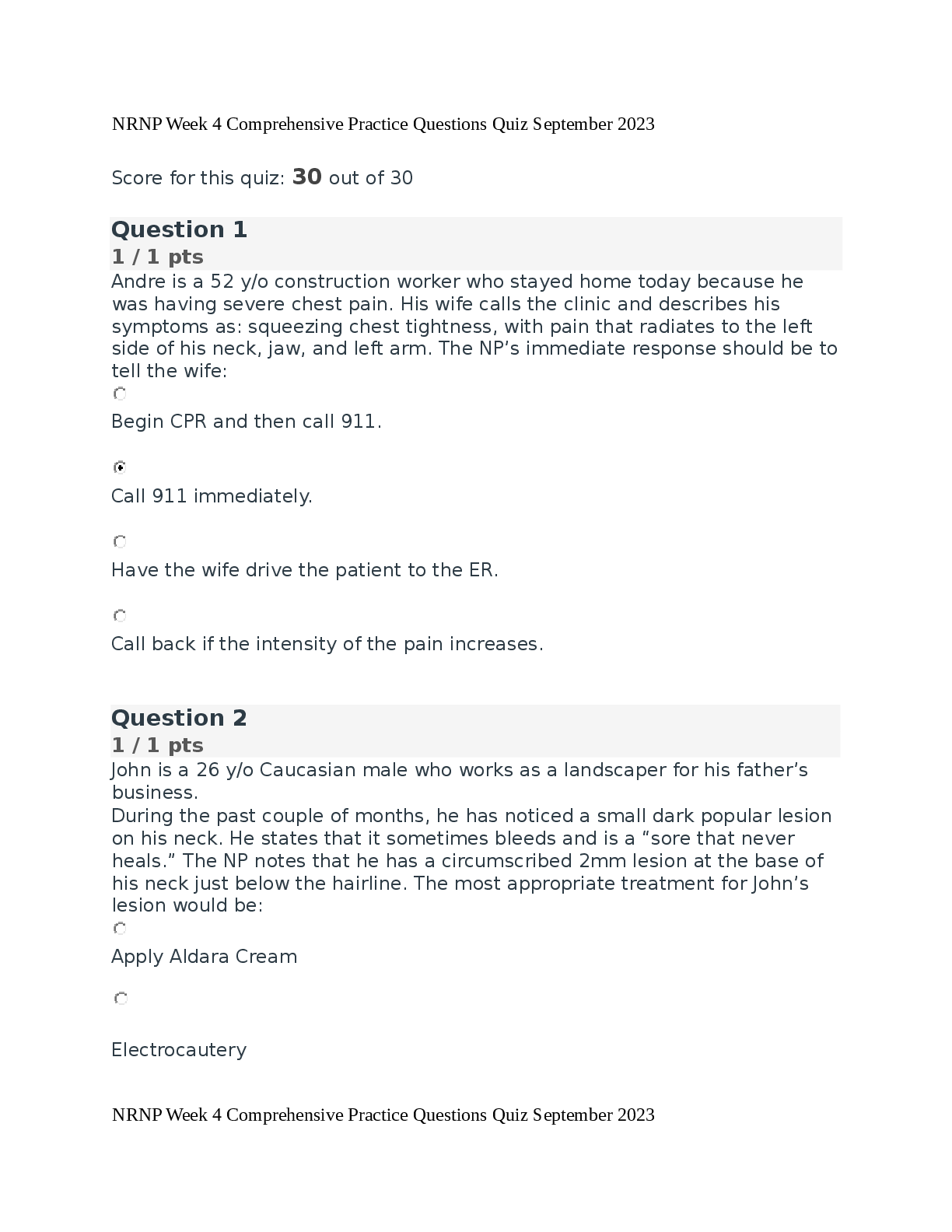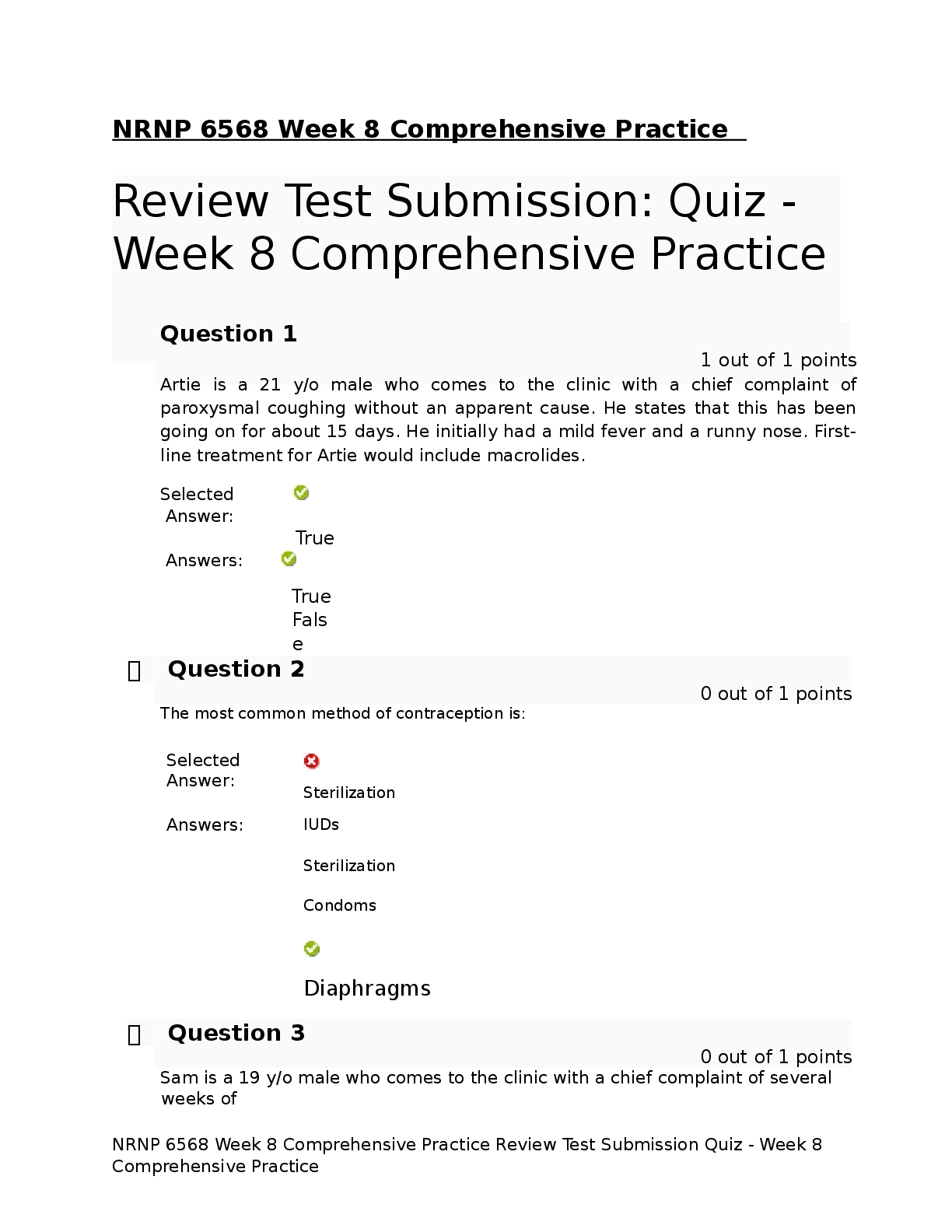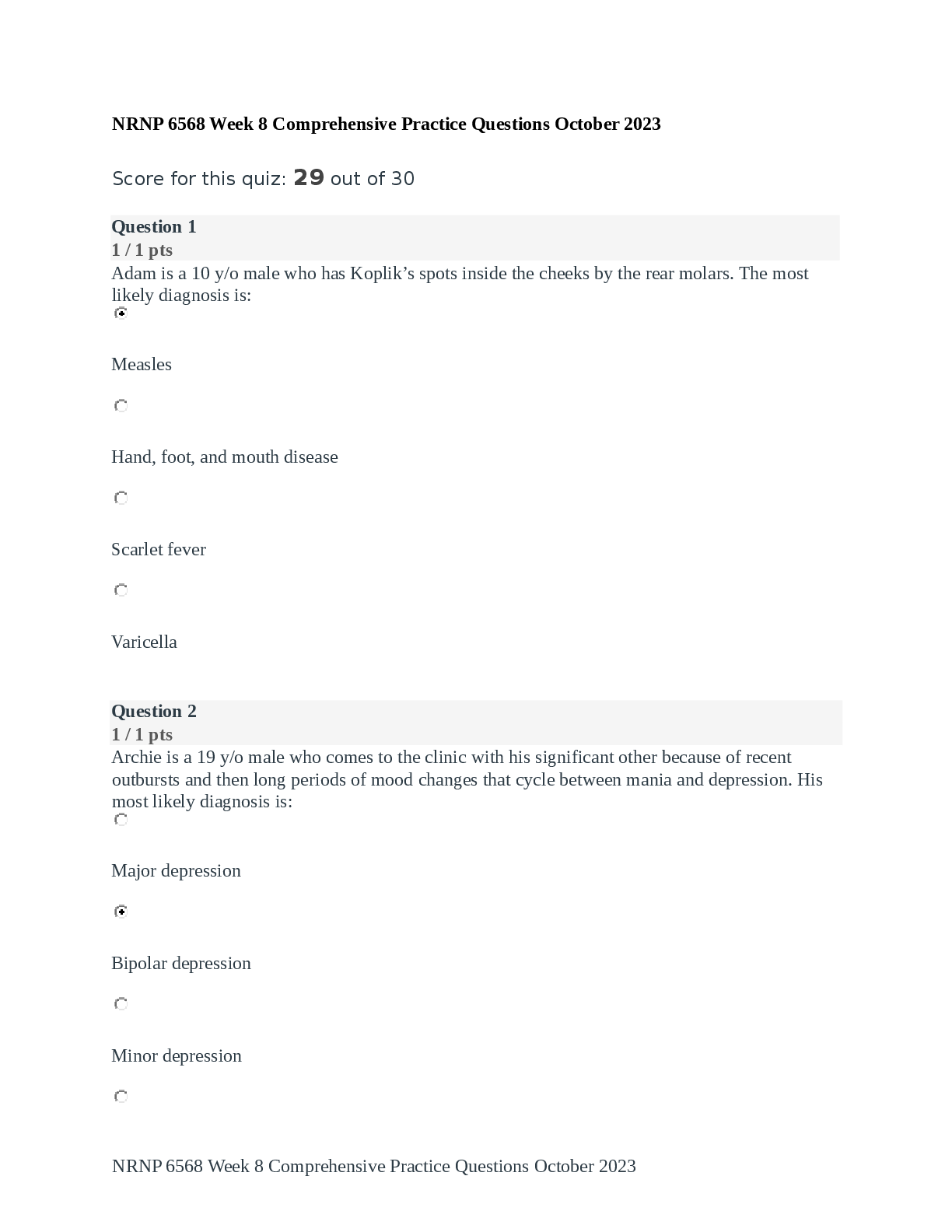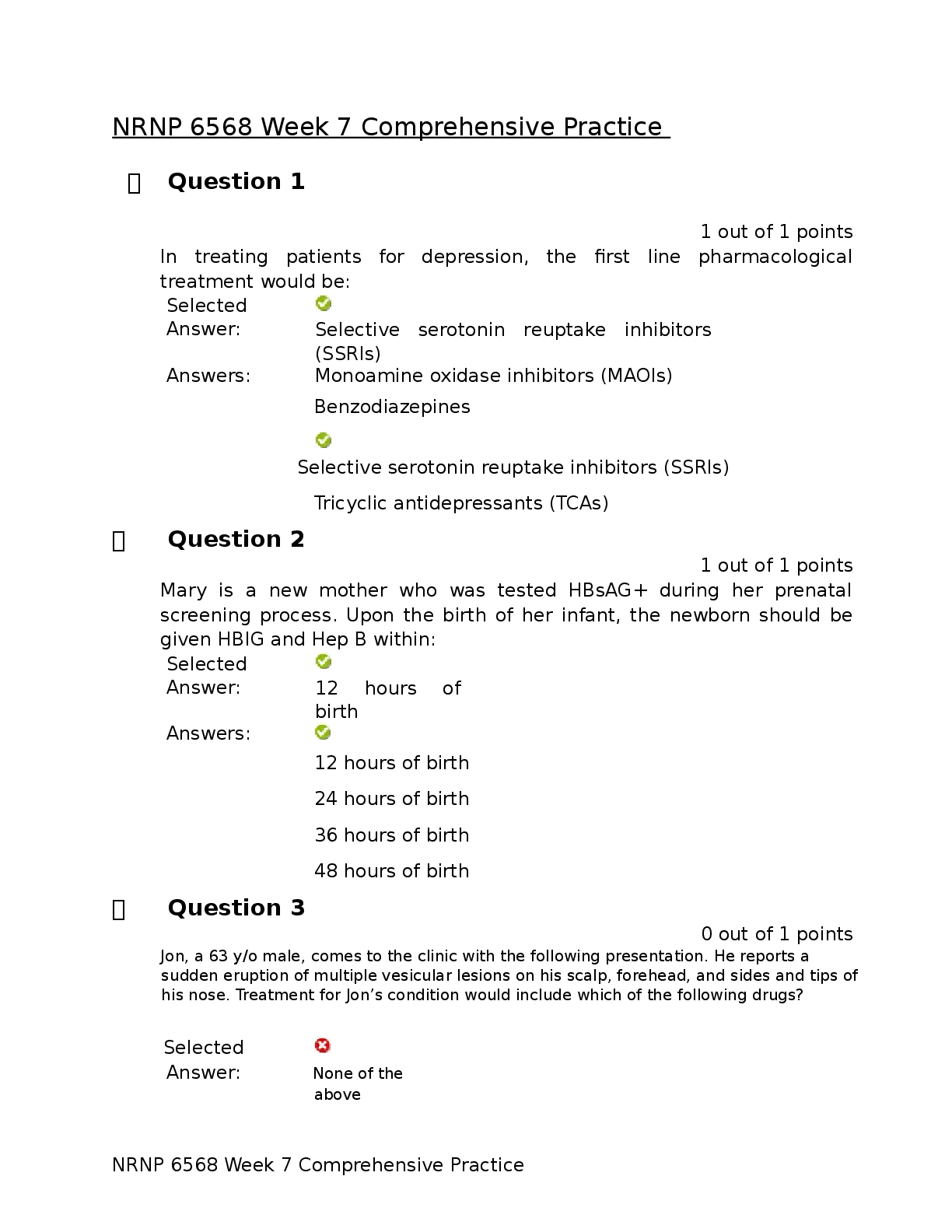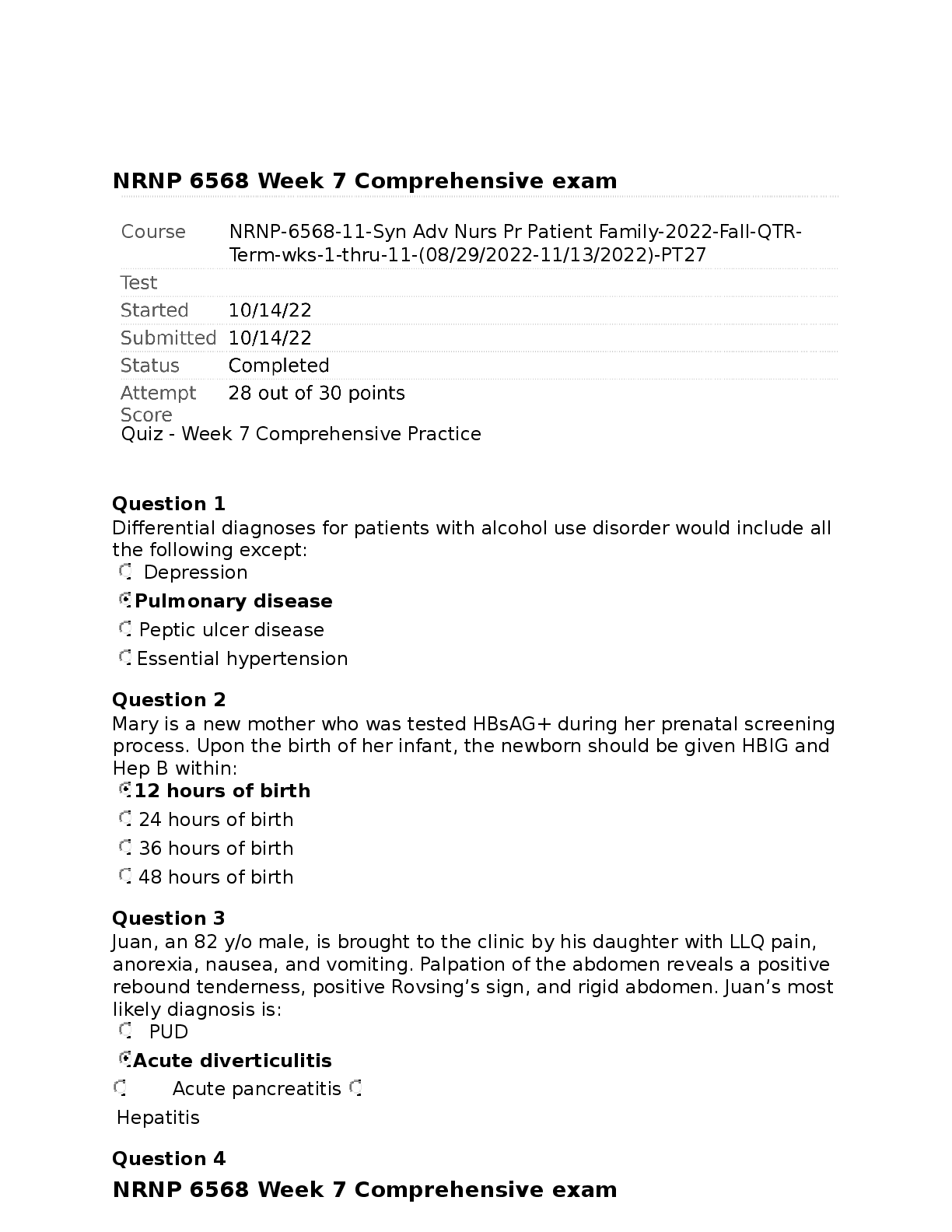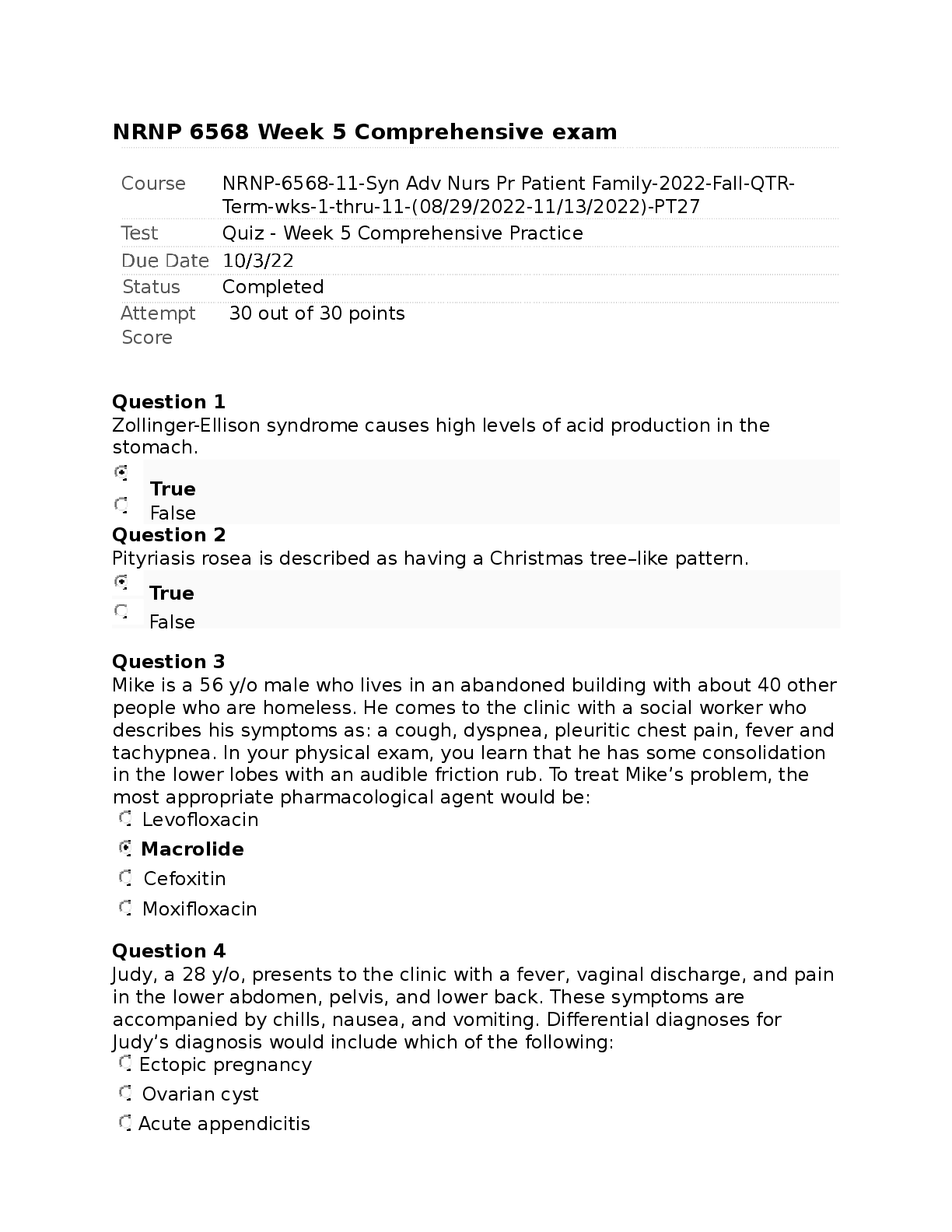SCIENCE 101 > EXAMs > NUTRI 100 Elements of Nutrition FINAL EXAM GRADED A (All)
NUTRI 100 Elements of Nutrition FINAL EXAM GRADED A
Document Content and Description Below
NUTRI 100 Elements of Nutrition FINAL EXAM GRADED AQuestion 1 (4 points) Carbohydrates, proteins, and lipids are _______. Question 1 options: micronutrients macronutrients subnutrients classifie ... d nutrients Save Question 2 (4 points) The sugars found in grains, vegetables, legumes, and fruits are _______. Question 2 options: carbohydrates lipids minerals amino acids Save Question 3 (4 points) The primary objective of the Dietary Guidelines for Americans is to ensure Americans _______. Question 3 options: consume less than 2,300 mg of sodium per day choose fiber-rich fruits, vegetables, and whole grains often increase intake of fats and oils high in saturated or trans fatty acids balance calorie intake with physical activity to manage weight Save Question 4 (4 points) Which of the following is the correct order of the recommended steps to prevent foodborne illness, according to the Dietary Guidelines for Americans? Question 4 options: Wash, Separate, Prepare, Store Clean, Separate, Cook, Chill Clean, Cook, Cool, Reheat Wash, Separate, Heat, Freeze Save Question 5 (4 points) The _______ estimates the nutrient intake level that will meet the needs of 50 percent of the individuals in a specific life-stage or gender group. Question 5 options: Estimated Average Requirement Recommended Dietary Allowance Tolerable Upper Limit Average Needs Level Save Question 6 (4 points) Essential nutrients are nutrients that _______. Question 6 options: can be synthesized in the body must be obtained from dietary intake are essential to good health can only be obtained through taking supplements Save Question 7 (4 points) The current icon to represent the food groups is known as _______. Question 7 options: The Food Guide Pyramid MyPlate MyPyramid Idaho Plate Method Save Question 8 (4 points) Replacing lost nutrients in foods is called _______. Question 8 options: fortification pasteurization enrichment modification Save Question 9 (4 points) The majority of digestion takes place in the _______. Question 9 options: duodenum colon jejunum ileum Save Question 10 (4 points) Celiac disease is treated by removing gluten from the diet. Gluten is found in all of the following EXCEPT _______. Question 10 options: wheat rye barley rice Save Question 11 (4 points) Lipase is an enzyme that breaks down _______. Question 11 options: carbohydrate fat protein all of these choices Save Question 12 (4 points) In order to move food from the mouth, down the esophagus, and into the stomach, the food must be made into _____. Question 12 options: chyme a bolus a blob an epiglottis Save Question 13 (4 points) A __________ fat has two or more carbon double bonds. Question 13 options: saturated bisaturated monounsaturated polyunsaturated Save Question 14 (4 points) Which of the following is not a digestion accessory organ? Question 14 options: liver gallbladder colon pancreas Save Question 15 (4 points) The AMDR for protein is______ percent of total daily calories. Question 15 options: 5 to 10 10 to 35 20 to 35 45 to 65 Save Question 16 (4 points) How many kilocalories are in 24 grams of fat? Question 16 options: 216 168 96 240 Save Question 17 (4 points) ___________ atoms are added to unsaturated fats in order to make liquid fats more solid at room temperature. Question 17 options: carbon hydrogen sodium lipid Save Question 18 (4 points) How many amino acids can’t be synthesized in the body? Question 18 options: 9 11 21 19 Save Question 19 (4 points) The AMDR for fat is _____________ percent of daily kilocalorie intake. Question 19 options: 45 to 65 5 to 10 20 to 35 10 to 35 Save Question 20 (4 points) An enzyme ___________ a chemical reaction. Question 20 options: slows down speeds up stops provides stability for Save Question 21 (4 points) Which of the following combines with carbon, hydrogen, and oxygen to make up the structure of protein? Question 21 options: nitrogen sulfur pepsin chloride Save Question 22 (4 points) A triglyceride is formed through a ____________reaction between a glycerol and _______fatty acid(s). Question 22 options: partial hydrogenation; one rehydration; three lipogenesis; one dehydration; three Save Question 23 (4 points) _______ is the deficiency associated with thiamin. Question 23 options: scurvy beriberi rickets anemia Save Question 24 (4 points) Which of the following choices include all of the fat-soluble vitamins? Question 24 options: vitamin B12, vitamin B6, vitamin C, vitamin D vitamin A, vitamin D, vitamin E, vitamin K vitamin D, vitamin K, thiamin, vitamin B6 vitamin E, vitamin A, vitamin B6, niacin Save Question 25 (4 points) B-complex vitamins often serve as _______. Question 25 options: cofactors/coenzymes blood thinners a source of calories none of these choices Save Question 26 (4 points) Flushing is a common side effect from which nutrient? Question 26 options: thiamin vitamin C niacin sodium Save Question 27 (4 points) The majority of sodium intake for the standard American diet comes from _______. Question 27 options: iodized table salt sauces and soups processed foods cheese Save Question 28 (4 points) Metabolism is described as the balance between __________ and _________ reactions in the body. Question 28 options: steroidal; carboxylic anabolic; synthetic catabolic; anabolic catabolic; amine Save Question 29 (4 points) You are able to maintain your body weight when energy expended _______ calories consumed................************continues [Show More]
Last updated: 3 years ago
Preview 1 out of 20 pages
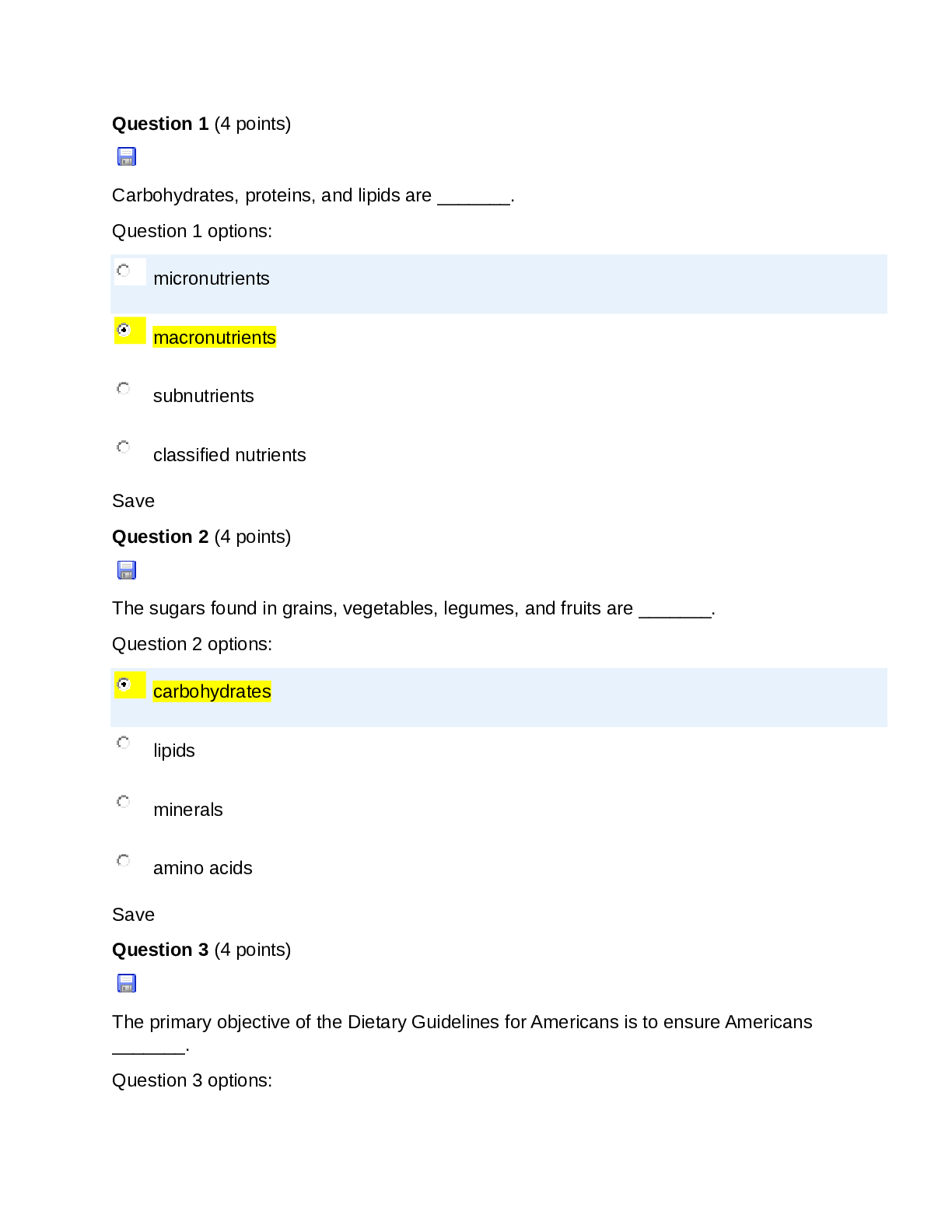
Buy this document to get the full access instantly
Instant Download Access after purchase
Buy NowInstant download
We Accept:

Reviews( 0 )
$14.00
Can't find what you want? Try our AI powered Search
Document information
Connected school, study & course
About the document
Uploaded On
Apr 23, 2021
Number of pages
20
Written in
All
Additional information
This document has been written for:
Uploaded
Apr 23, 2021
Downloads
0
Views
109

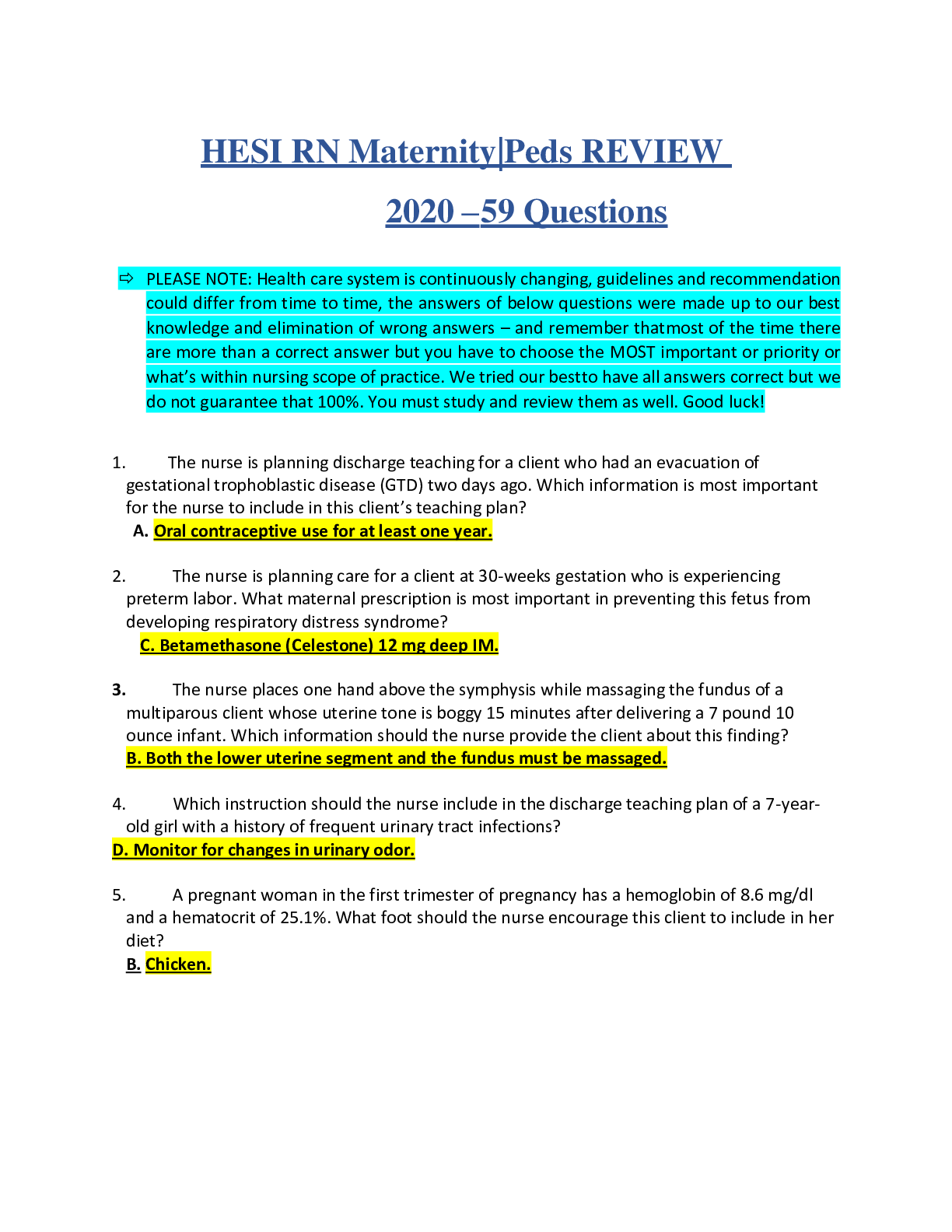
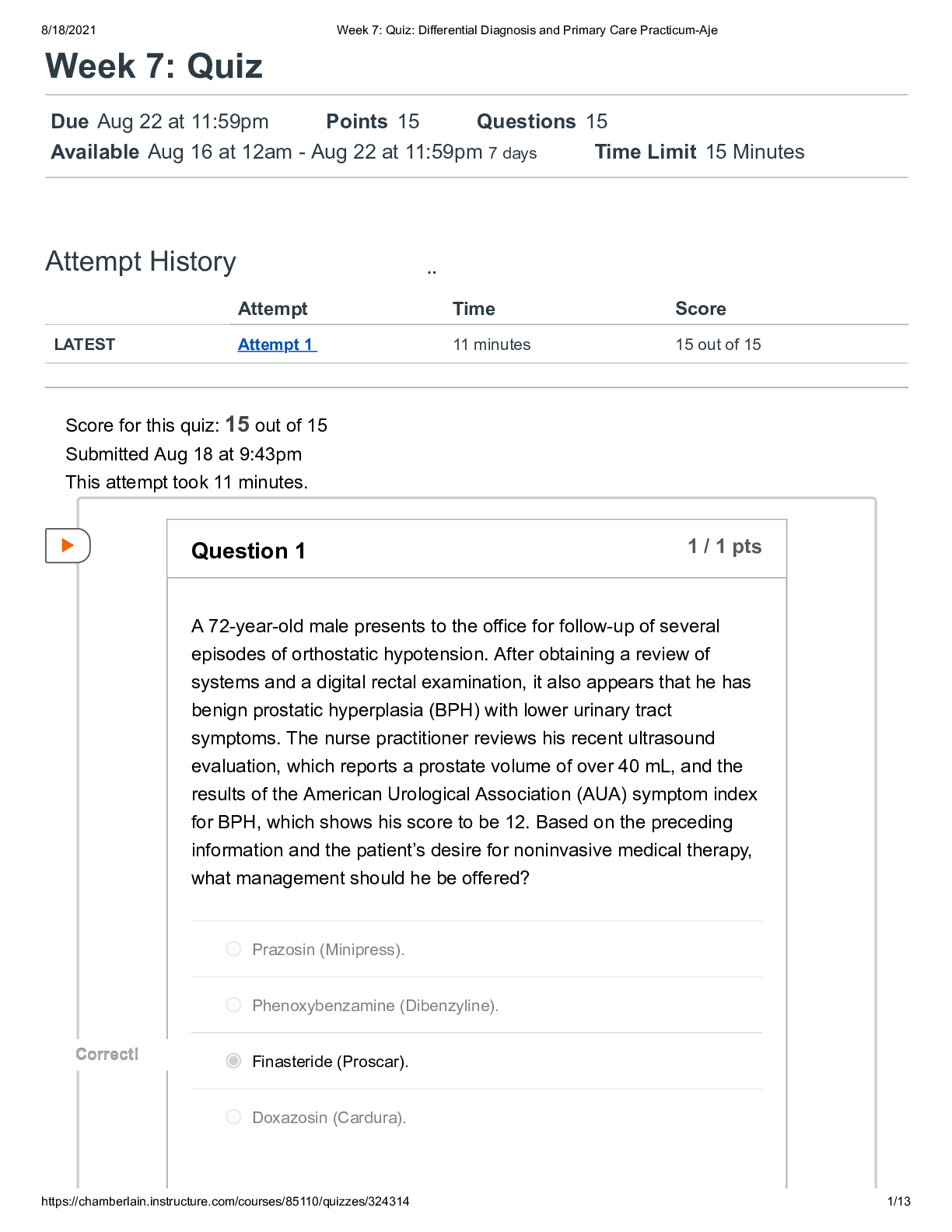
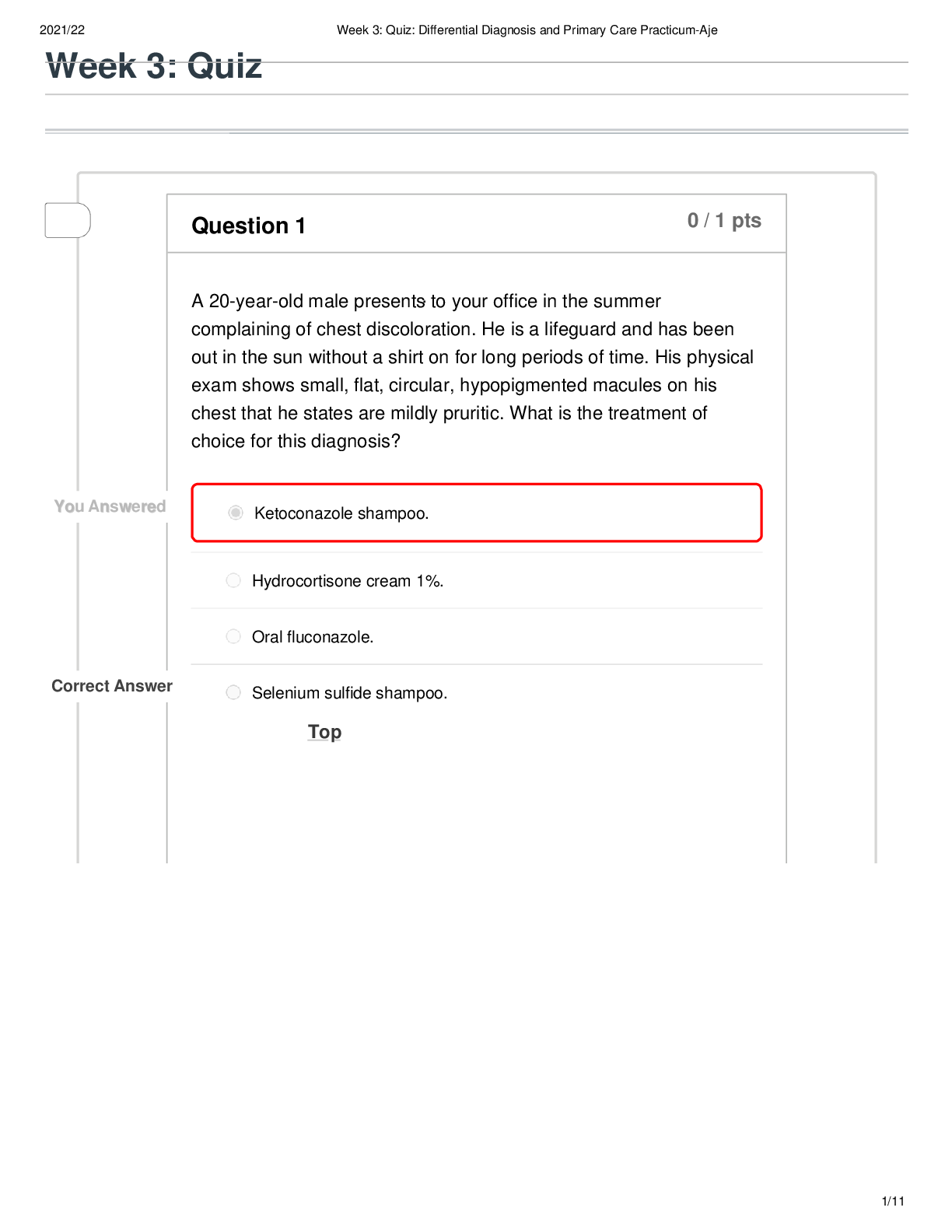
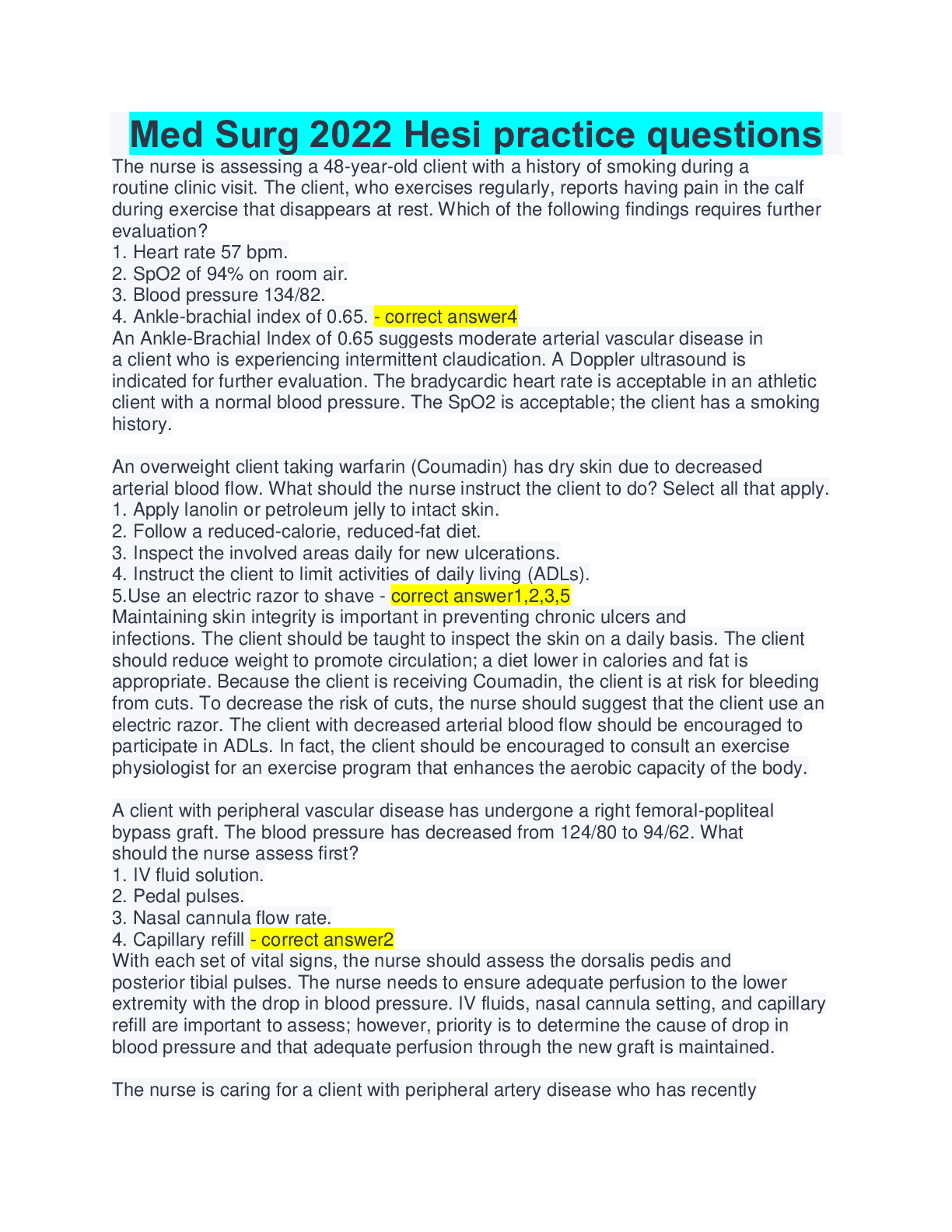
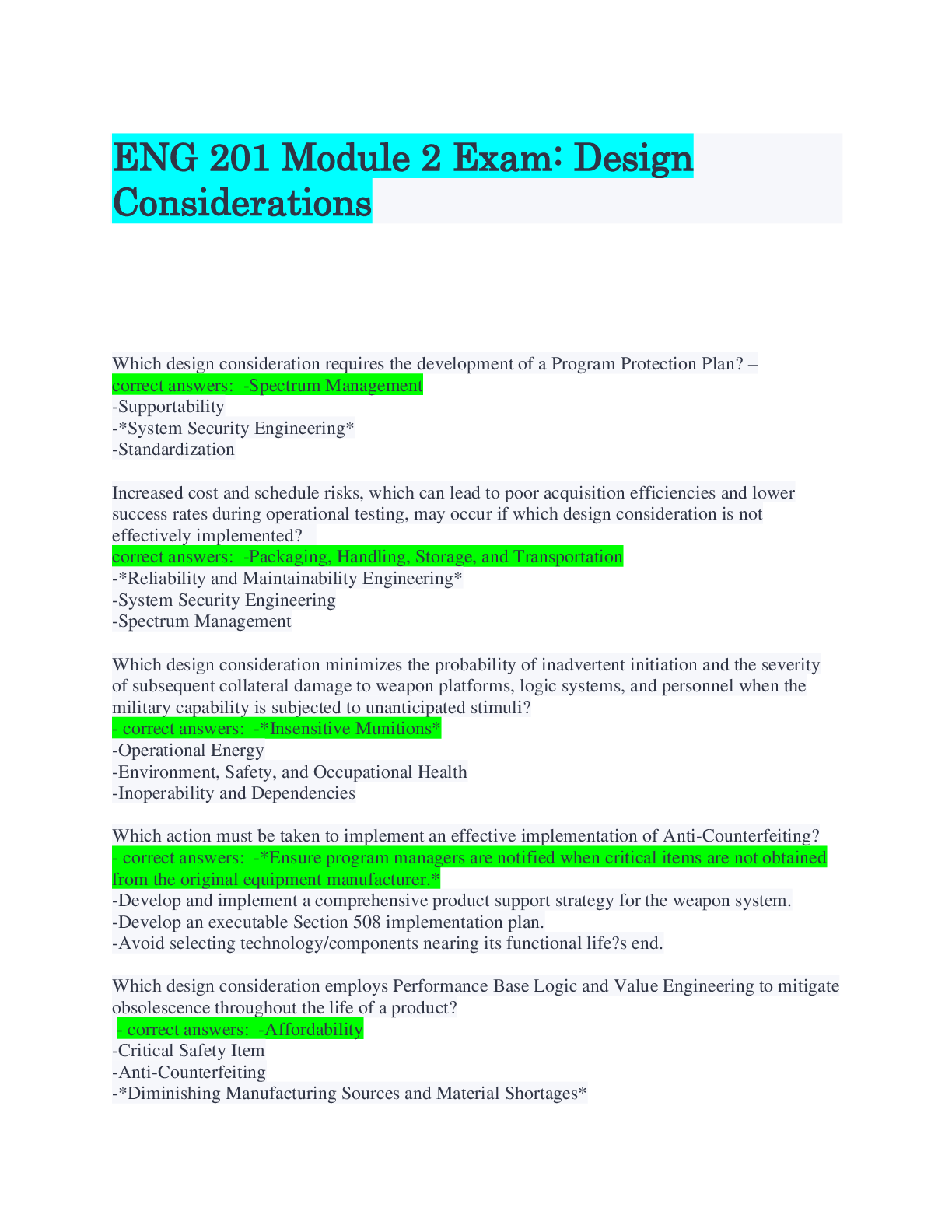
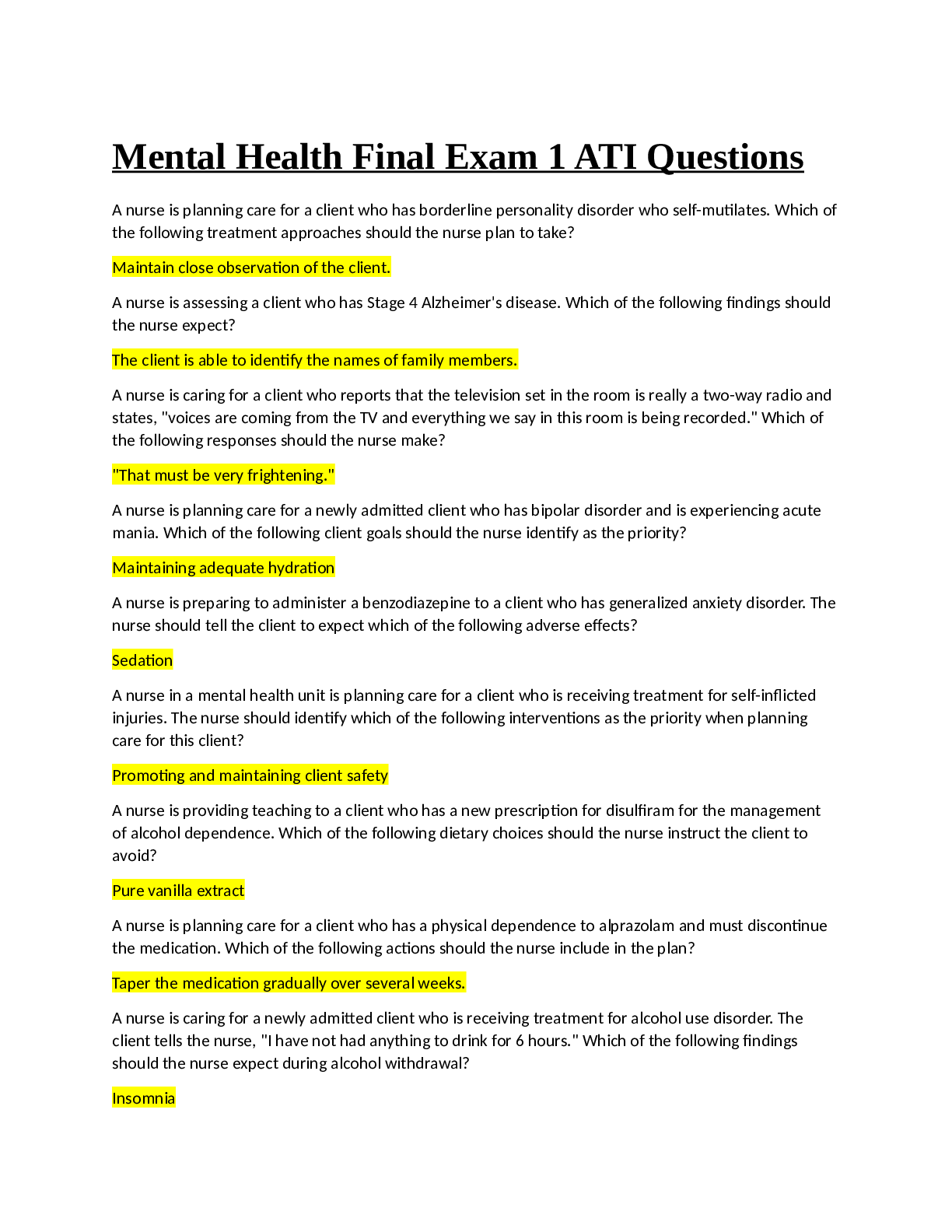
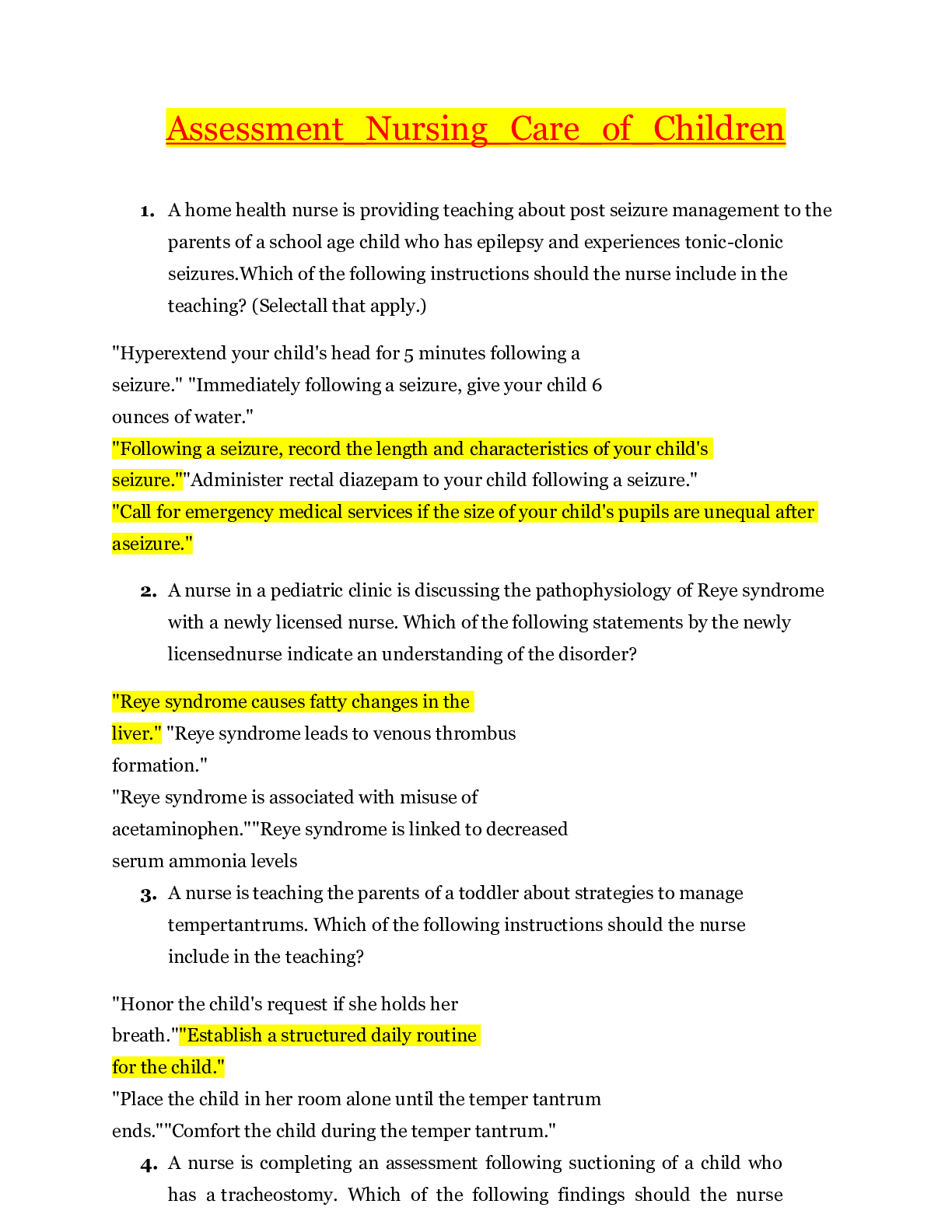

.png)


